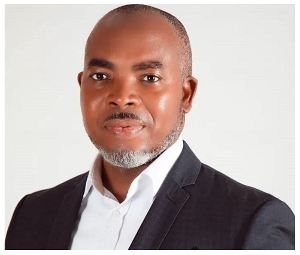- Home - News
- TWI News | TV
- Polls
- Year In Review
- News Archive
- Crime & Punishment
- Politics
- Regional
- Editorial
- Health
- Ghanaians Abroad
- Tabloid
- Africa
- Religion
- Election 2020
- Coronavirus
- News Videos | TV
- Photo Archives
- News Headlines
- Press Release
Business News of Monday, 8 September 2014
Source: B&FT
ASN undercuts mortgage competition
Having acquired licence to operate non-banking financial services, home-builder ASN Properties says it intends to ease the burden of potential home-owners by underwriting its own mortgages at the much cheaper interest rate of 12% to 15% with thirty-year tenure.
With interest rates on mortgages imitating the unbearably high rates of over 30% in the country generally, the company believes it is making it possible for the average middle-income earner to own a home.
The subsidiary to offer the mortgage, ASN Financial Services Limited, has started business in earnest and is hoping to attract Ghanaians who live and work here, and not necessarily those living abroad who tend to be the usual target of the market.
“Because we are the vendors of these properties, our margins have already been factored into the pricing -- therefore our interest rate of 12% to 15% is a plus to sustain the currency, making it very affordable to the Ghanaian middle-class. We have 200 two-bedroom and 200 three-bedroom houses to start with,” CEO of ASN Holdings Limited, Prince Yaw Sarpong, told the B&FT.
“In this real-estate business, people make up to 200% from the price on the table before they send it to the housing companies,” he said.
“So once you are making that margin, and you are the vendor and the financier, you can offer good rates to the prospective buyer. If these real-estate companies had their own way to go to the market and raise bonds, and have private equity firms or hedge-fund companies coming to their aid, they would not go to these financiers.
Because if they have funds for 15 years they will build the house for US$100,000, put a margin of 20% or 30% on it and give it to the client at an interest rate of about 10% or 15%. But in the prevailing circumstances, there is a limit to what the real-estate company can do and there is a limit to what the financier also can do. In our case, we have the two coming together.”
Asked why real-estate companies charge so much for their houses, Mr. Sarpong blamed the lack of government support in the provision of infrastructure, among other things, for the situation.
“Some people will argue that now you can build a house for US$50,000. But government is not providing any infrastructure. If you go to our site, electricity, water, roads, and drainage were all done by us. You cannot build such infrastructure and then charge rates that are not helpful to your business.”
With income levels being generally low in the country, many Ghanaians are incapable of affording mortgages, especially when interest rates on them are so high.
According to Asare Akuffo and HFC Bank, only 5-8% of Ghanaians can afford a house from their own resources; about 60% need financial assistance; 35% are not capable of owning or building a house in their lifetime.
Between 12% and 15% comprising mainly top civil servants and staff of financial institutions have access to mortgage loans. For this reason, about 60% of the market participants are resident non-Ghanaians or non-resident Ghanaians.
“What ASN is trying to do is to build our own houses and underwrite this by own mortgage institution to minimise the cost of housing for Ghanaians, and this is going to change a lot of the story,” Mr. Sarpong said.
“This licence is going to help us meet the Ghanaian at a point where most of the real-estate firms cannot.
The problem for most of the real-estate companies is underwriting, but we can raise a bond on the back of this licence. It becomes an asset base of our institution for 30 years.
We can raise as many bonds as possible to fund what we are doing, thereby not keeping the burden on the client of raising upfront cash. This licence enables us to go to other financiers to raise funds to build.”










